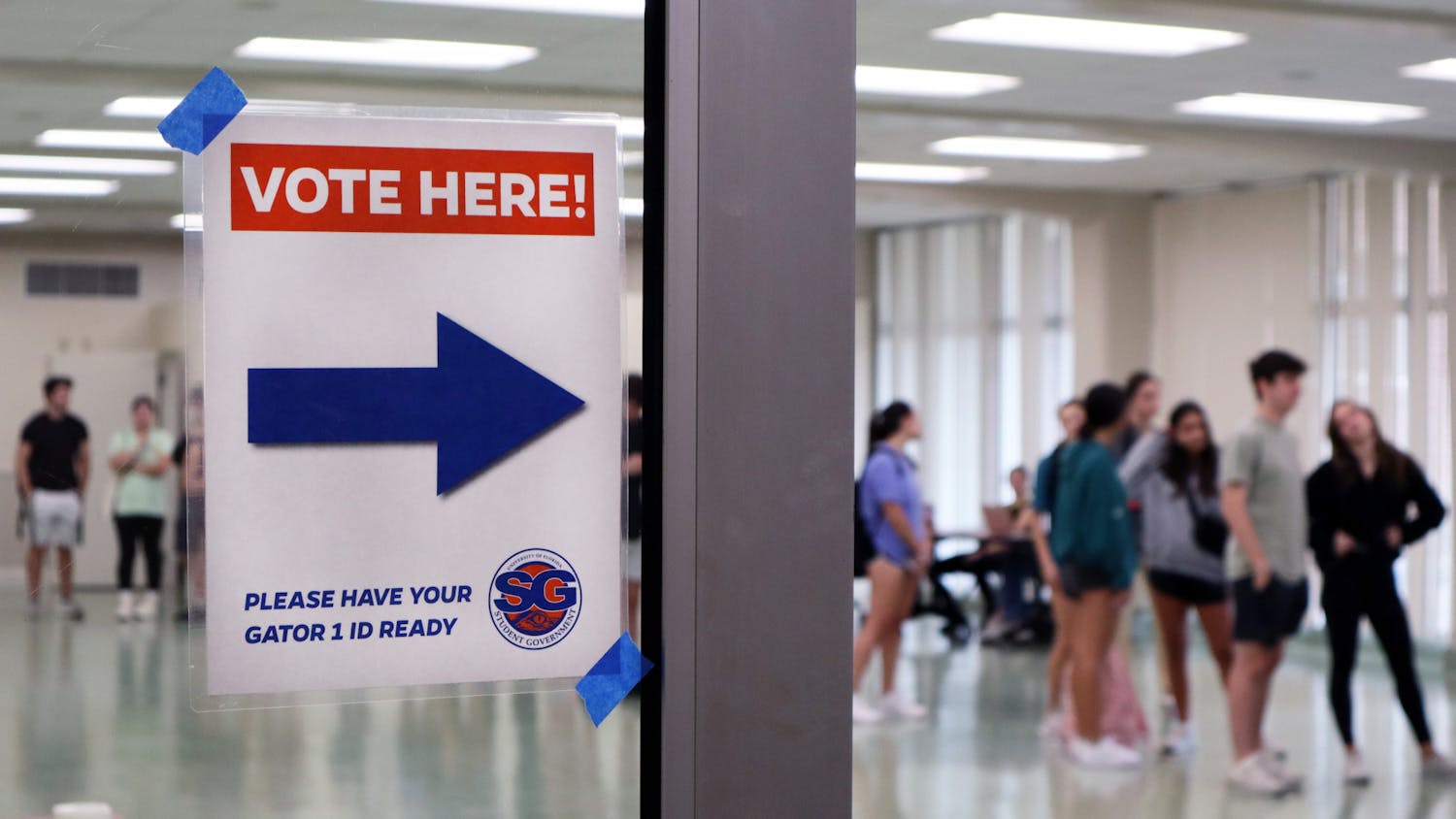The historic 2023 spring election, which caused a deadlocked Senate, has led to persistent issues in the Senate chambers.
Schedule conflicts and lack of quorum prevented executive nominees from being selected.
Student government representatives are worried about partisan issues stemming from the spring election, which has flipped the Senate majority.
UF Student Body President Olivia Green denounced the disrespect she has witnessed in the Senate Chambers, such as laughing and walking out during previous meetings. She is concerned about the future of student government.
“It has now been five weeks that [Change Party] has held up these executive nominations, in those five weeks I have not received one email…no questions, no answers, no concerns,” she said.
“If you would like to withhold nominations for the entire summer and prevent freshmen students from having any opportunities because you want to vote with your party,” Green said. “Then that is your prerogative.”
Green thought Senate President Oscar Santiago Perez (Change-District D) called her unladylike after they said she was “unbecoming and uncharacteristic” at a May 23 meeting.
“I’m not unbecoming, and I’m not uncharacteristic,” she said. “I’m frustrated because you’re withholding the Senate for six weeks.”
Senator John Brinkman (Gator-District B) said people need to realize the importance of the positions on the agenda.
“There’s a lot of work that goes into event planning looking at the history of UF and seeing what cool stuff people have done in the past,” Brinkman said. “And what we can recreate and just support events that make students feel good, there’s a lot of work that goes into that.”
Brinkman thinks many people in the Senate have never held positions in these agencies. They may not know the importance of the work done or how hard it can be to negotiate contracts for speakers, he said.
These statements were made in reference to ACCENT, which usually hosts at least one summer show. Brinkman has served in both the legislative and executive branch in various positions.
Judiciary member and Senator Joaquin Rafaele Cecilia Marcelino (Change-District D) shared that the frustrations Green has stem from being used to the status quo of student government.
“With the action of the Change Caucus, we’re trying to implement a more thorough and meticulous vetting process,” Marcelino said, “And do our part of the checks and balances of student government in order to make sure that these nominees are thoroughly vetted.”
Majority party leader Simone Liang (Change-CLAS) expressed that Change Party vetting candidates is an example of the checks and balances she hasn’t seen in a while from a Senate majority of an independent party different from the executive board.
“From senators of our caucus, I think this is a unique opportunity to actually deliberate on these candidates,” she said. “Which we didn’t really have the opportunity to do before.”
Minority party leader Bronson Allemand condemned the recent actions of the majority party, Change Party, in an email.
“The Change Party has abused its power to make unilateral decisions to further secure its majority within the Senate,” Allemand wrote. “Gator Party does not condone Change Party’s refusal to allow for the legitimate consideration of applicants approved by the bipartisan Replacement and Agenda committee.”
Allemand ended the email by affirming members of the Replacement and Agenda Committee within Gator Caucus would not be attending meetings of this committee until the Change Party realigns its behaviors and reaches an agreement regarding its abuse of this process.
The May 28 meeting was called to order and adjourned at 1:15 p.m.
The meeting failed to meet quorum after only three members were present: Liang, Santiago Perez and Senate pro tempore Nathan McGinnis.
Four members are required to meet a quorum.
Due to a quorum not being established, executive nominees could not be reviewed. Applicants for permanent committee seats, permanent Senate seats and replacement summer seats could not be considered.
Liang expressed disappointment that the nominees did not show up to the meeting, and felt sympathetic toward the people who could not be interviewed at all.
“Besides the fact that three elected officials before this committee decided not to show up,” McGinnis said. “It’s unprofessional because of the reasoning behind it. It's also unconstitutional because they are upset that not everyone is in total agreement with nominations not having debates.”
Per the rules of the Senate, a simplified version of the agenda will be used for the meeting on May 30, and any bills that still need their first reading will not be considered.
In addition, any newly submitted legislation that could not be heard due to a lack of quorum in the judiciary will not be reviewed at the following Senate meeting May 30.
Contact Vivienne at vserret@alligator.org. Follow her on Twitter @vivienneserret.
Vivienne Serret is a UF journalism and criminology senior, serving as the Fall 2024 race and equity reporter for The Alligator's Enterprise desk. She previously worked as a columnist and previously reported for The Alligator's university desk as the student government reporter. She loves karaoke and lifting at the gym.






